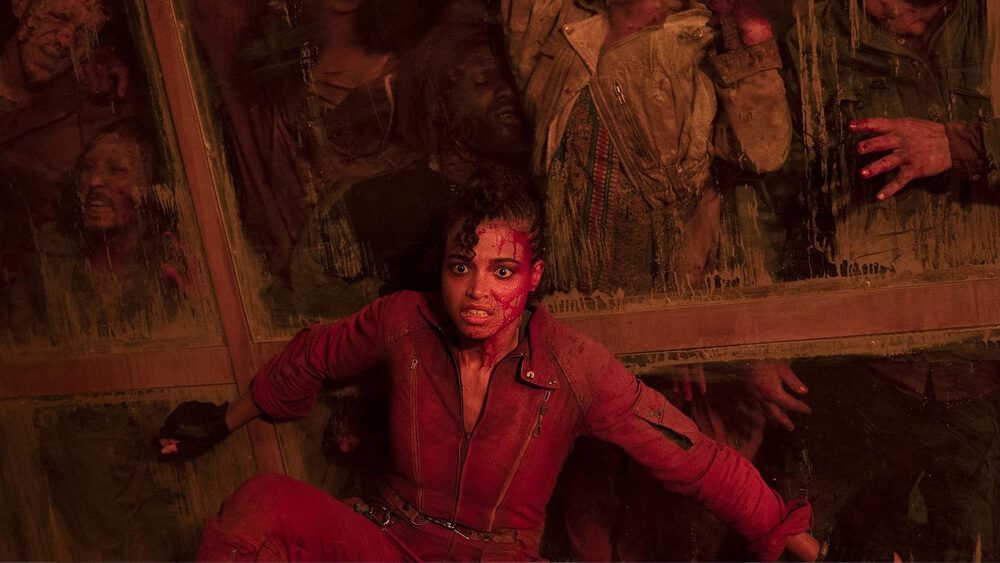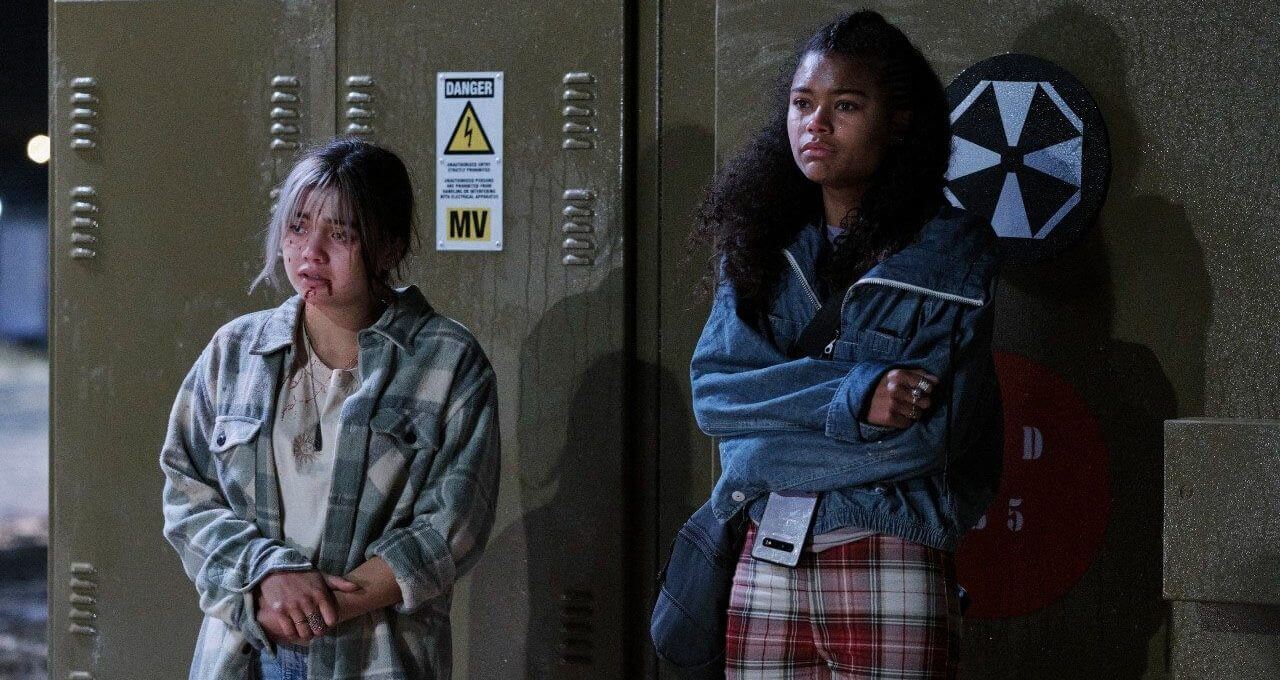
Resident Evil – Picture: Netflix
Resident Evil was one of the highest-profile cancelations in 2022, and for many, its swift cancelation didn’t come as much of a surprise, but what went wrong? According to a new interview, the problems may lie at the door of Netflix.
For those who don’t know, the live-action Resident Evil adaptation was released on Netflix in July 2022.
After a good start in Netflix’s top 10s, the show soon developed signs that any good fortune would be shortlived.
Hourly top 10s suggested the show suffered one of the biggest drops in viewership in 2022 from weeks 2 to 3 after barely being able to hold onto viewership between the first three days and the second full week.
That’s compounded by the fact that audiences widely disliked the series and even critics struggled to get on board with the direction.

RottenTomatoes Score for Resident Evil
Just over a month after release, Resident Evil was canceled for good, with the star of the show Lance Reddick reacting shortly afterward by saying:
“As all of you are well aware by now, our show Resident Evil on Netflix has been canceled and the haters and the trolls notwithstanding, I want to give a special thank you to all the fans who watched the show, got what we were doing, and really loved it because there are a hell of a lot of you.”
Where did the problems lie?
TV production has a lot of stakeholders and decision-makers, with Netflix themselves involved at the top level and ConstantinFilm at the producer level. Then you have the talent on and off the camera too.
There’s a lot to get wrong when it comes to making shows. What may seem good on paper may not necessarily translate well on screen and sometimes, even if everything is pulled off without a hitch, the end product may still not connect.

Picture: Netflix
According to a new interview with the vice-CEO of Constantin Film, the problems could lie at the feet of executives at Netflix.
In an interview on October 17th, the German producer spoke to DWDL about his current movements in the US and the state of streaming, Hollywood, and entertainment as a whole.
Toward the end of the interview, Oliver Berben gave a bit of a peek beneath the hood at what went wrong with the Resident Evil series.
When asked what went wrong with Resident Evil for Netflix, Berben said (translated from German):
“In the end, one has to state soberly that the way in which Netflix wanted to place “Resident Evil”, namely deliberately very strongly in the female young-adult segment, was too far away from the actual core of the brand. The brand is a bit older and more masculine. Forward-looking, this leads to the exciting consideration of how to manage to expand the target group a little over the next two to three years. When a title like this takes first place worldwide, it’s because of the IP, because so many people know and want to see the title.”
When asked about whether they warned Netflix of this decision or pushed back, Berben said:
“Yes, of course. We’ve had endless discussions about positioning. That’s why – in addition to the pandemic – it took so long before we were able to shoot. Our US boss Robert Kulzer and I have said again and again: You have to think carefully about where the core of the brand lies and how far you can deviate from it. Based on 20 years of theatrical exploitation and over a billion dollars in box office, we have pretty good experience of who goes to the cinema and who doesn’t. However, it was Netflix’s express wish to see if we could transfer the brand to a young, female audience. And I also want to make it clear: I don’t think the attempt is a punishable offense. Logically, our interest is now again strongly directed towards cinema, because the economically more interesting form of exploitation is always theatrical exploitation, especially in the case of global brands. In this respect we are not so unhappy about the situation.”
This implies, at least to us, that Netflix executives had a fundamental misunderstanding as to who Resident Evil appealed to in the first place.
If you ask most fans of the video game franchise or looked at demographic. Teenage girls likely wouldn’t have been high on the list of who to target.
Was this the case of Netflix’s data informing what direction the show had to go in or the gut instinct of executives?
We should point out that Constantin Film hasn’t had the best track record with the Resident Evil license even before the Netflix series.
The Milla Jovovich have their fans for sure, but none are what you’d call critically acclaimed by either audiences or critics.
The most recent movie entry (which served as a reboot), Resident Evil: Welcome to Raccoon City, scored poorly with critics and received mixed reviews from audiences. It that released a year before Netflix’s series.
Where do you think the Resident Evil series went wrong? Let us know in the comments.


 Rating: TV-MA
Rating: TV-MA


